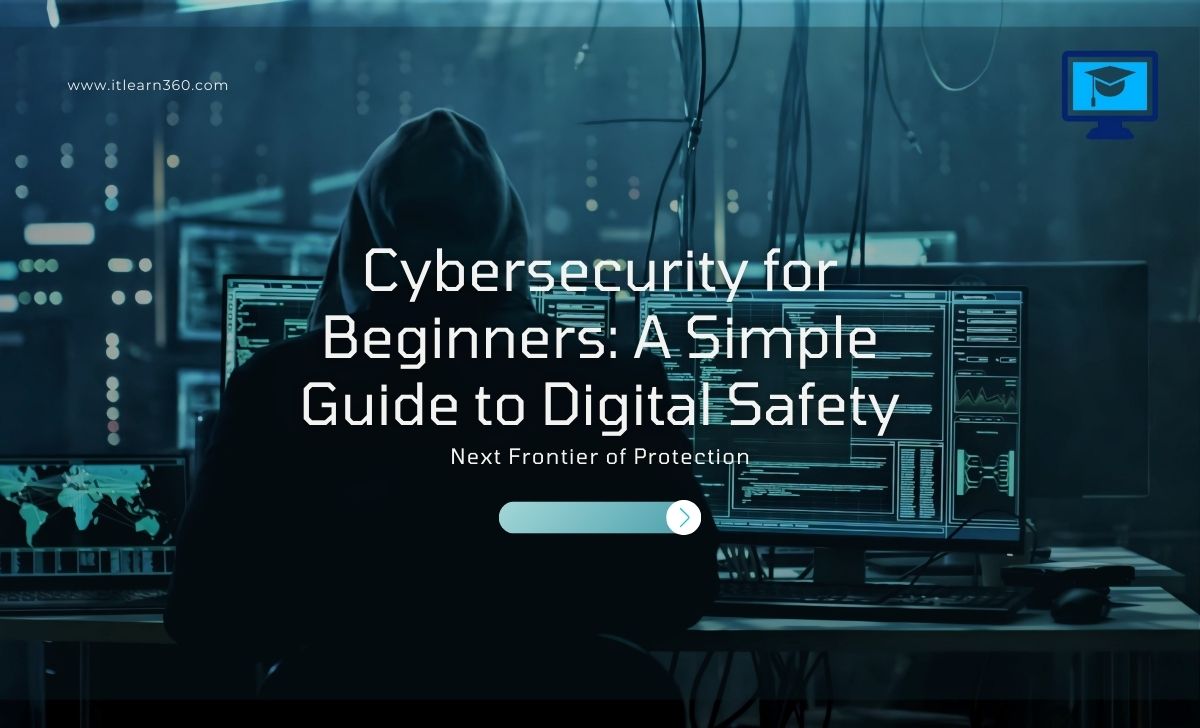Introduction: Why Cybersecurity Matters in Everyday Life
Imagine logging into your bank account and finding out that your savings are gone or getting emails from someone who claims to be you. Scary, right? This is why cybersecurity is so essential. Our digital lives are more important than ever, especially in today’s digital-first world, where nearly everything – from shopping to banking – is done online.
Cybersecurity might sound like a complex concept best left to IT professionals, but in reality, it’s for everyone. Knowing the basics of digital safety can help you avoid becoming a victim of cybercrime, whether you’re a student, a professional, or just someone who loves to browse the internet.
What is Cybersecurity? A Beginner-Friendly Definition.
Cybersecurity is all about protecting your devices, networks, and personal data from unauthorized access or harm. Think of it like locking your computer doors and windows to stop strangers from entering. It includes practices, tools, and technologies to safeguard everything from your online banking credentials to your social media accounts.
Why Cybersecurity Should Matter to You
You don’t have to be a tech expert to care about cybersecurity. Here’s why:
- Cyber Threats Are Everywhere: From phishing emails to ransomware attacks, cybercriminals are constantly investigating how to exploit unsuspecting users.
- Your Personal Data Is Valuable: Hackers often sell stolen data on the dark web, leading to identity theft and financial loss.
- Simple Mistakes Can Be Costly: Clicking on a suspicious link or using “password123” can open the door to cyberattacks.
Key Cybersecurity Concepts for Beginners
Here are some important terms explained in simple language:
- Phishing: Fake emails or messages that trick you into revealing personal information.
- Malware: Harmful software designed to damage or steal data from your devices.
- Ransomware: A type of malware that locks your files until you pay a ransom.
- Two-Factor Authentication (2FA): An extra layer of security requiring two forms of verification to access an account.
How to Stay Safe Online: Beginner’s Checklist
Start with these practical tips to boost your online security:
- Use Strong, Unique Passwords: Avoid easy-to-guess passwords. Tools like password managers can help you create and store complex ones.
- Enable Two-Factor Authentication: This simple step makes it harder for hackers to access your accounts.
- Think Before You Click: Always hover over links to verify their authenticity before clicking.
- Keep Your Software Updated: Regular updates fix security vulnerabilities in your apps and devices.
- Secure Your Wi-Fi: Use a strong password for your home network, and consider enabling a firewall.
Common Cyber Threats You Should Be Aware Of
Understanding potential risks can help you recognize and avoid them:
- Phishing Scams: Fake emails that mimic trusted organizations.
- Social Engineering: Manipulative tactics used to trick people into giving away information.
- Unsecured Websites: Avoid websites that don’t use HTTPS; they may be unsafe for transactions.
Tools to Get You Started with Cybersecurity
For beginners, these tools are a great starting point:
- Antivirus Software: Protects against malware and viruses.
- VPN (Virtual Private Network): Secures your internet connection, especially on public Wi-Fi.
- Password Managers: Help you create and remember strong passwords.
The Importance of Learning Cybersecurity
Cybersecurity isn’t just a skill—it’s a necessity. By learning the basics, you:
- Protect your personal information and privacy.
- Avoid costly mistakes, like falling for scams.
- Build a foundation for exploring cybersecurity careers.
How ITLearn360 Can Help You Get Started
At ITLearn360, we focus on helping beginners learn cybersecurity. Our beginner-friendly courses are designed to make even complex topics understandable. Whether you’re interested in safeguarding your information or considering a career in cybersecurity, we’ve got you covered.
https://www.itlearn360.com/courses/cyber-security-academy
Conclusion: Take the First Step Toward Digital Safety
Cybersecurity doesn’t have to make people nervous. By taking small, manageable steps, you can help protect yourself and your loved ones from cyber threats. Start today with the tips and tools shared in this guide—and remember, a safer digital life is just a few clicks away.







